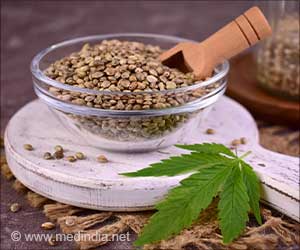- A Review of Hemp as Food and Nutritional Supplement - (https://www.ncbi.nlm.nih.gov/pmc/articles/PMC7891210/)
- Industrial Hemp (Cannabis sativa subsp. sativa) as an Emerging Source for Value-Added Functional Food Ingredients and Nutraceuticals - (https://www.ncbi.nlm.nih.gov/pmc/articles/PMC7571072/)
- Hemp vs Marijuana: The Difference Explained (2020 Update) - (https://medium.com/cbd-origin/hemp-vs-marijuana-the-difference-explained-a837c51aa8f7)
- Hemp as a raw material for industrial applications - (https://doi.org/10.1007/s10681-004-4749-8)
About
There is a lot of discussion about cannabis, hemp, and cannabinoids these days. But they're not just words of significant magnitude. They're like paths to feeling better naturally.
As interest in cannabis, hemp, and cannabinoids flourishes, education and responsible usage remain paramount. Consulting healthcare professionals and adhering to local regulations ensure safe and informed exploration of these botanical allies, especially as cannabis laws evolve worldwide.
Sativa Cannabinoids and Medical Cannabis
Sativa strains of cannabis have uplifting and energizing effects. Doctors are increasingly prescribing medical cannabis, which may include both CBD and THC, for various conditions. The choice between sativa and other strains depends on individual preferences and therapeutic goals.
Did You Know?
CBD and THC are two prominent cannabinoids with distinct effects. CBD doesn't make you high and is good for healing, while THC gives the fun feeling from using cannabis. The balance between these cannabinoids influences the overall effects of cannabis products.What is Cannabis?
Cannabis, often referred to as marijuana, is a flowering plant native to Central and South Asia. It has been cultivated for thousands of years for various purposes, including medicinal, recreational, and industrial uses. The plant contains numerous chemical compounds known as cannabinoids, the most notable of which are THC (tetrahydrocannabinol) and CBD (cannabidiol).
What are the Functions of Cannabis?
Medicinal Use: Cannabis has been used medicinally for centuries to alleviate symptoms associated with various medical conditions. It is known for its potential to relieve pain, reduce inflammation, alleviate nausea, and stimulate appetite, among other therapeutic effects.
Recreational Use: Cannabis is commonly used recreationally for its psychoactive effects. THC, the primary psychoactive compound in cannabis, produces feelings of euphoria, relaxation, and altered perception when consumed.
Industrial Applications: Cannabis has a wide range of industrial uses. Hemp, a variety of cannabis with low THC content, is cultivated for its fibrous stalks, seeds, and oil. Hemp fibers can be used to produce textiles, paper, rope, and biodegradable plastics, while hemp seeds are rich in protein, omega-3 fatty acids, and other nutrients.
Spiritual and Ritualistic Practices: Cannabis has played a significant role in spiritual and ritualistic practices in various cultures throughout history. It has been used ceremonially to induce altered states of consciousness, enhance meditation, and facilitate spiritual exploration.
Environmental Benefits: Cannabis cultivation has environmental benefits, as hemp plants can absorb large amounts of carbon dioxide from the atmosphere, mitigate soil erosion, and require minimal use of pesticides and herbicides compared to other crops.
Research and Innovation: Cannabis research continues to uncover new potential applications and benefits of cannabinoids and other compounds found in the plant. Scientists are exploring cannabis-derived treatments for a wide range of medical conditions, including epilepsy, multiple sclerosis, anxiety, and chronic pain.
What is Hemp Oil?
Hemp oil, derived from hemp seeds, offers a bounty of nutrients, including omega fatty acids, vitamins, and minerals. People use hemp oil in skincare and supplements to nourish the body, harnessing the plant's natural goodness(1✔ ✔Trusted Source
A Review of Hemp as Food and Nutritional Supplement
Go to source).
What are the Functions of Hemp Oil?
Nutritional Supplement: Hemp oil is rich in essential fatty acids, including omega-3 and omega-6 fatty acids, which are beneficial for heart health, brain function, and overall well-being.
Skin Health: Hemp oil is often used in skincare products due to its moisturizing properties. It can help hydrate the skin, regulate oil production, and soothe inflammation, making it suitable for various skin types.
Hair Care: Hemp oil can be applied topically to the scalp and hair to moisturize, strengthen, and promote healthy hair growth. Its fatty acid content helps nourish the hair follicles and improve overall hair condition.
Heart Health: The omega-3 and omega-6 fatty acids present in hemp oil may help support cardiovascular health by reducing inflammation, lowering cholesterol levels, and improving circulation.
Brain Function: Essential fatty acids found in hemp oil are important for cognitive function and may contribute to brain health. They are involved in neurotransmitter function and may help protect against age-related cognitive decline.
Immune Support: Hemp oil contains antioxidants and other beneficial compounds that may help support the immune system and protect against oxidative stress and inflammation.
Pain Relief: Some research suggests that hemp oil may have analgesic properties and could help alleviate pain and discomfort associated with conditions such as arthritis, neuropathy, and menstrual cramps.
Digestive Health: Hemp oil is rich in fiber, which can promote digestive health by supporting regular bowel movements and aiding in the digestion and absorption of nutrients.

What are Cannabinoids?
Cannabidiol isolate, a pure form of CBD extracted from hemp, excludes other cannabinoids and plant compounds. This targeted approach appeals to individuals seeking the benefits of CBD without the presence of THC or other cannabinoids(2✔ ✔Trusted Source
Industrial Hemp (Cannabis sativa subsp. sativa) as an Emerging Source for Value-Added Functional Food Ingredients and Nutraceuticals
Go to source).
Cannabinoids, the chemical compounds found in cannabis, interact with the body's endocannabinoid system, modulating various physiological functions like mood, appetite, and pain perception. Beyond CBD and THC, an array of cannabinoids awaits exploration, each with its unique effects and potential applications.
Sativa cannabinoids, derived from Cannabis sativa plants, embody a spectrum of effects, from energizing to uplifting. Sativa strains, cherished for their stimulating properties, cater to recreational users seeking a vibrant experience rooted in nature(3✔ ✔Trusted Source
Hemp vs Marijuana: The Difference Explained (2020 Update)
Go to source).
Function of Cannabinoids?
Pain Relief: Cannabinoids, such as THC (tetrahydrocannabinol) and CBD (cannabidiol), have analgesic properties that can help alleviate pain by interacting with cannabinoid receptors in the brain and peripheral nervous system.
Anti-inflammatory Effects: Cannabinoids have been shown to have anti-inflammatory properties, which can help reduce inflammation associated with conditions like arthritis, inflammatory bowel disease, and neuroinflammatory disorders.
Neuroprotection: Cannabinoids have neuroprotective effects, meaning they may help protect neurons from damage and degeneration, potentially offering therapeutic benefits for neurodegenerative diseases like Alzheimer's and
Mood Regulation: Cannabinoids can influence mood and emotional states by interacting with neurotransmitter systems in the brain, including serotonin and dopamine pathways. This may contribute to their potential role in managing symptoms of anxiety, depression, and PTSD.
Appetite Stimulation: THC, in particular, is known for its ability to stimulate appetite, often referred to as the "munchies." This effect can be beneficial for individuals experiencing appetite loss due to medical conditions or treatments like chemotherapy.
Antiemetic Properties: Cannabinoids, especially THC, have antiemetic properties that can help reduce nausea and vomiting, making them useful in managing side effects of chemotherapy and other medical treatments.
Seizure Control: CBD has gained attention for its potential anticonvulsant properties and its ability to reduce the frequency and severity of seizures in certain forms of epilepsy, leading to the approval of CBD-based medications for epilepsy treatment.
Sleep Regulation: Some cannabinoids, particularly CBD, may have calming and sedative effects that can promote relaxation and improve sleep quality, making them potentially useful for individuals with insomnia or sleep disorders(4✔ ✔Trusted Source
Hemp as a raw material for industrial applications
Go to source).
Did You Know?
Clinical trials and animal studies show that cannabis may help with pain and mental health.Summary
CBD Gummies, Oil, and Other Popular Products
CBD gummies, oils, tinctures, and capsules are among the most popular products in the market. Each offers a unique experience, with factors such as onset time and convenience influencing consumer preferences.
In simple terms, cannabis, hemp, and cannabinoids are like nature's little miracles, offering us a path to holistic wellness and alternative healing.
Hemp is a versatile plant that can help with many health issues. It has strong anti-inflammatory properties and is rich in nutrients, especially in its seed oils. Hemp seed oil interacts with cannabinoid receptors and can be used as a dietary supplement. However, be careful with drug tests because it contains a small amount of THC.
However, it is crucial to consider the varying levels of THC in cannabis plants. Ensuring that the cannabis products being used are of good quality is important. Additionally, being mindful of THC levels can help prevent any potential interactions or complications with other medications.
Disclaimer: The information provided in this article is for educational and informational purposes only. It is not intended as medical advice or a substitute for professional medical diagnosis, treatment, or guidance. Always consult with a qualified healthcare provider before starting any new treatment or making changes to existing ones.










